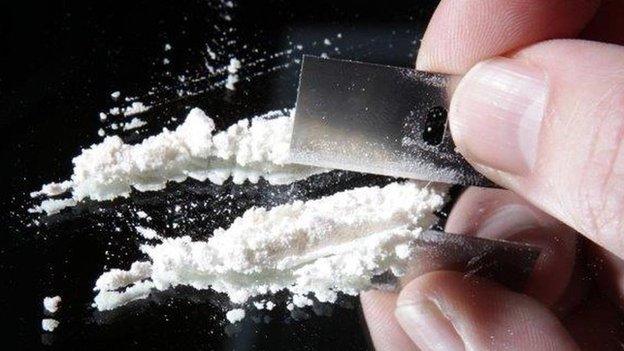'County lines': Aberdeenshire, Perthshire and Highlands targeted by drugs gangs
- Published
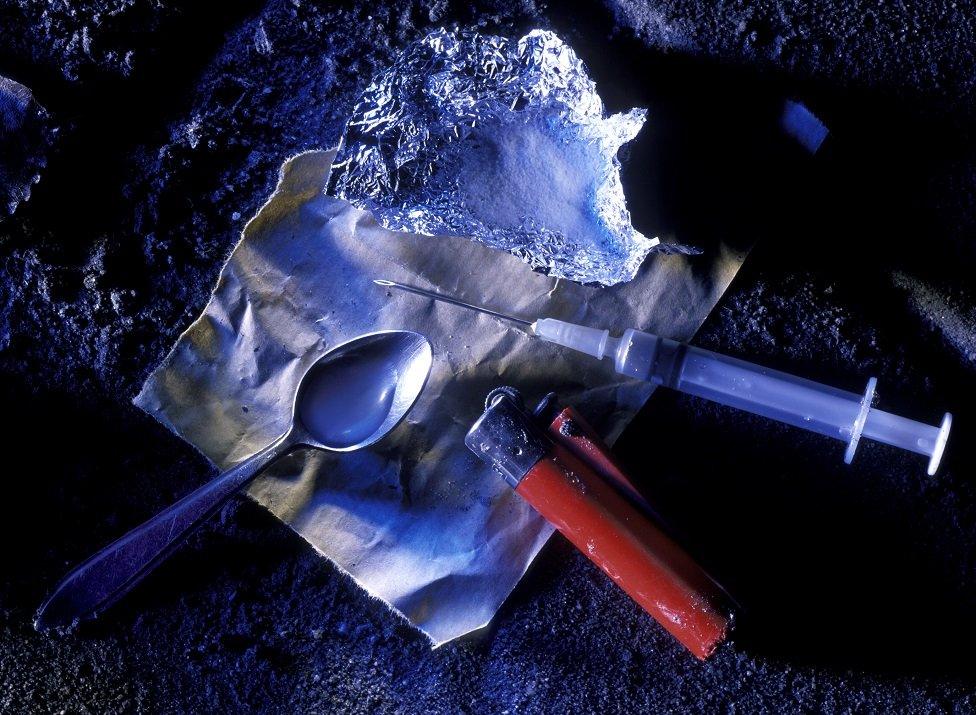
Rural communities in the Highlands, Aberdeenshire and Perthshire are being targeted by gangs using school children to sell class A drugs.
Dealers based mainly in London and Merseyside use youngsters to move heroin and crack cocaine from major cities to smaller locations.
Police Scotland say there are more than 20 active routes north of the border known as "county lines".
And in a major crackdown last week, officers made a series of arrests.
Police Scotland's special "intensified" operation was jointly organised by the National Crime Agency and the National Police Chiefs' Council.
Its results included:
Six men and two woman were arrested
Police visited 18 "cuckooed" addresses
One vulnerable adult was identified
One bladed weapon was recovered
Officers seized cash totalling £2,560
Drugs worth £31,180 were recovered
The lucrative business operates via dedicated mobile phone lines where drug orders are made.
Across the UK, profits from the trade are estimated at about £500m by the National Crime Agency (NCA).
What is "county lines"?
Crimestoppers has told BBC Scotland it has seen a 600% rise in Scottish county lines-related calls from January to September this year compared to the same period in 2018.
The charity said children as young as 15 may not even realise they have been sucked in to front the operation.
Gangsters trick the young person in to becoming a drug courier by asking if they want to make money. They are asked to transport a parcel but may be clueless as to the contents.
Their homes are taken over to stash cash, drugs and guns - known as "cuckooing".
Many of the youngsters have been through the care system.
They are showered with expensive gifts in exchange for working as a mule.
Angela Parker, Crimestoppers' Scotland manager, said county lines were an "increasing problem".
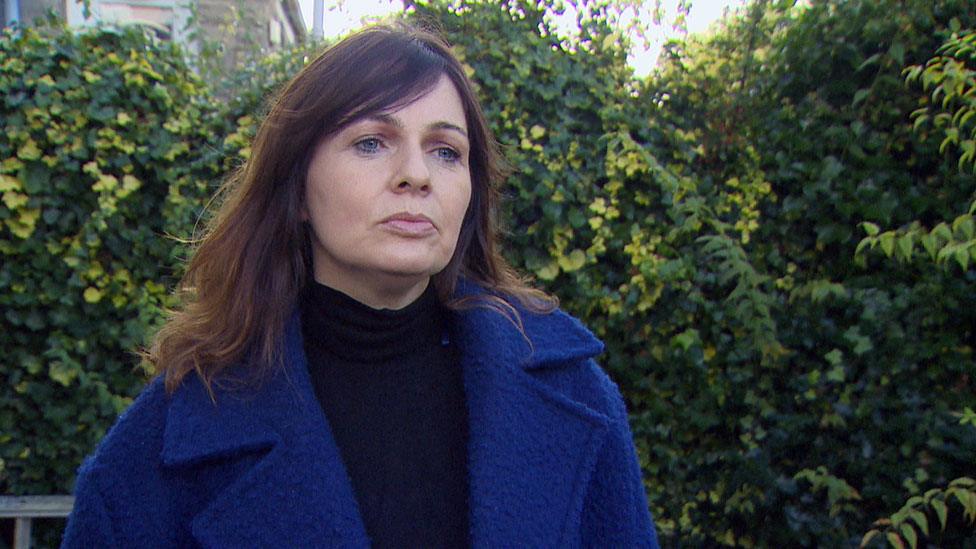
Angela Parker said Crimestoppers has seen a huge rise in the number of calls relating to county lines
She said: "It's always been around in some shape or form but we have seen a significant increase in calls to Crimestoppers about it."
"For some young children it is a way out of a difficult situation because they are lured by the rewards," she added.
"The gangs see rural areas as a soft target. It is easier for them to move in to those areas and not be noticed."
'Targeting minors'
DCI Alan Henderson, of Police Scotland, said: "Scotland is predominantly an importer of county lines. We don't export to England and Wales.
"Police Scotland currently has over 20 identified county lines dealing primarily in class A drugs. The north east of Scotland is most significantly impacted for this activity.
"The largest single exporting area in to Scotland is Merseyside
"County lines, as it is now referred to, is not anything new. Organised crime groups have for years been targeting minors to maximise their drug dealing"
Illegal drugs are having a devastating impact on Scotland's communities. The number of deaths linked to substances soared to 1,187 last year - the highest since records began.
It also means Scotland has a higher drug death rate than the one reported for the United States of America.
Scotland's Public Health Minister Joe FitzPatrick has said "radical steps" are needed to address the "emergency".
A Scottish government taskforce is examining the factors behind the deaths and advise on action - despite drugs policy being reserved to Westminster.
Responding to the number of active lines in Scotland, the NSPCC told the BBC: "Young people involved in 'county lines' are often coerced into taking huge risks moving drugs and weapons for the benefit of others, and can face serious punishments and repercussions if caught.
"We must be clear that young people who are criminally exploited are victims of child trafficking, and need access to appropriate support to ensure their safety."
- Published15 October 2019
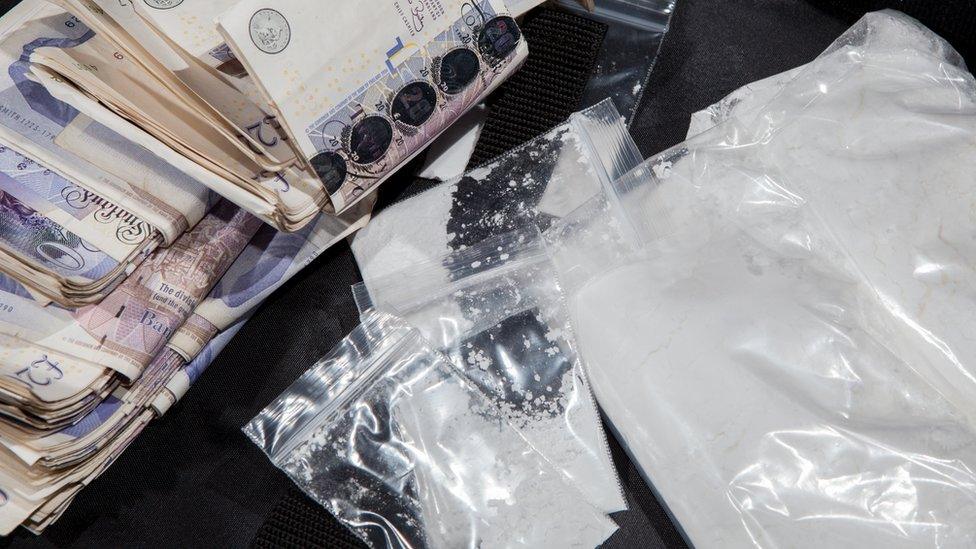
- Published8 April 2019
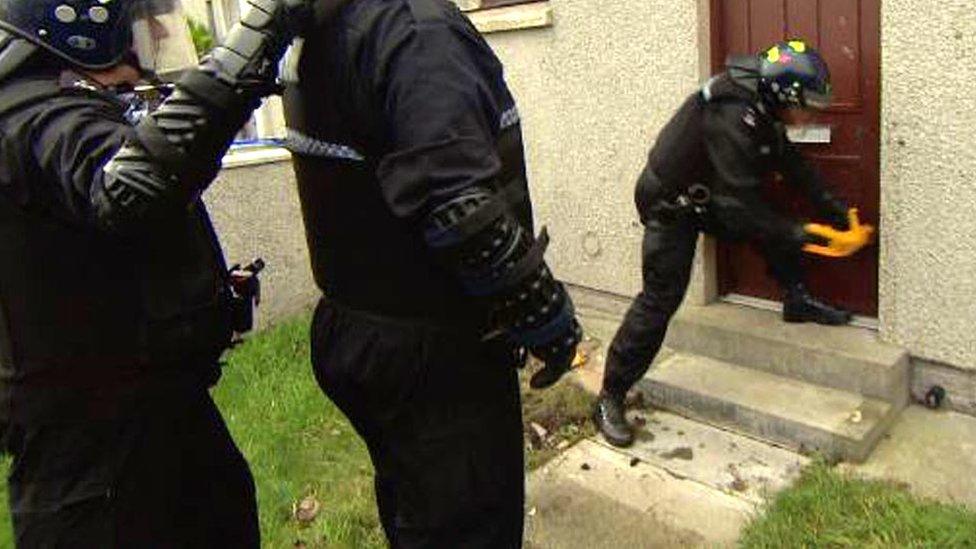
- Published23 October 2018

- Published27 November 2017
